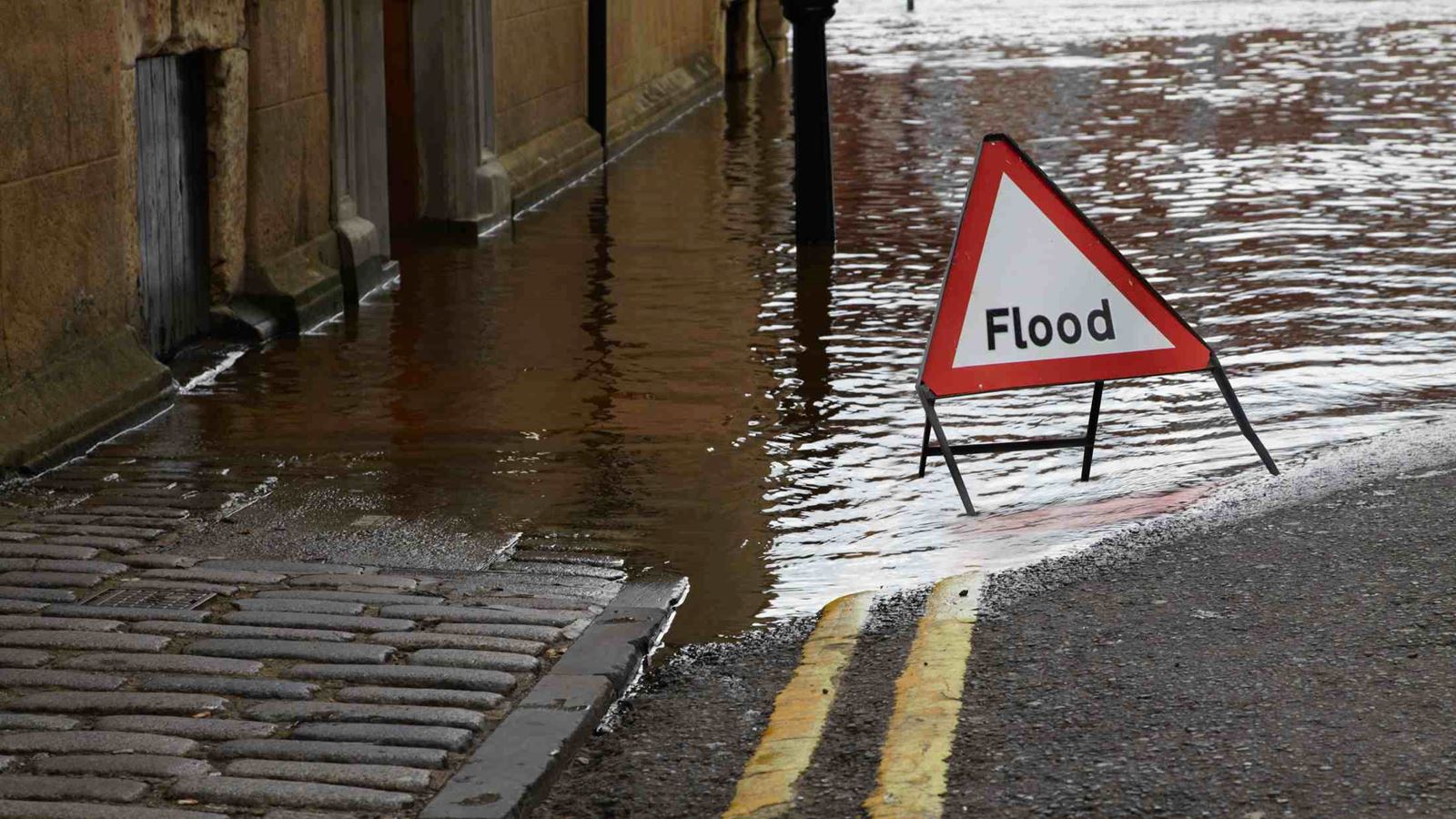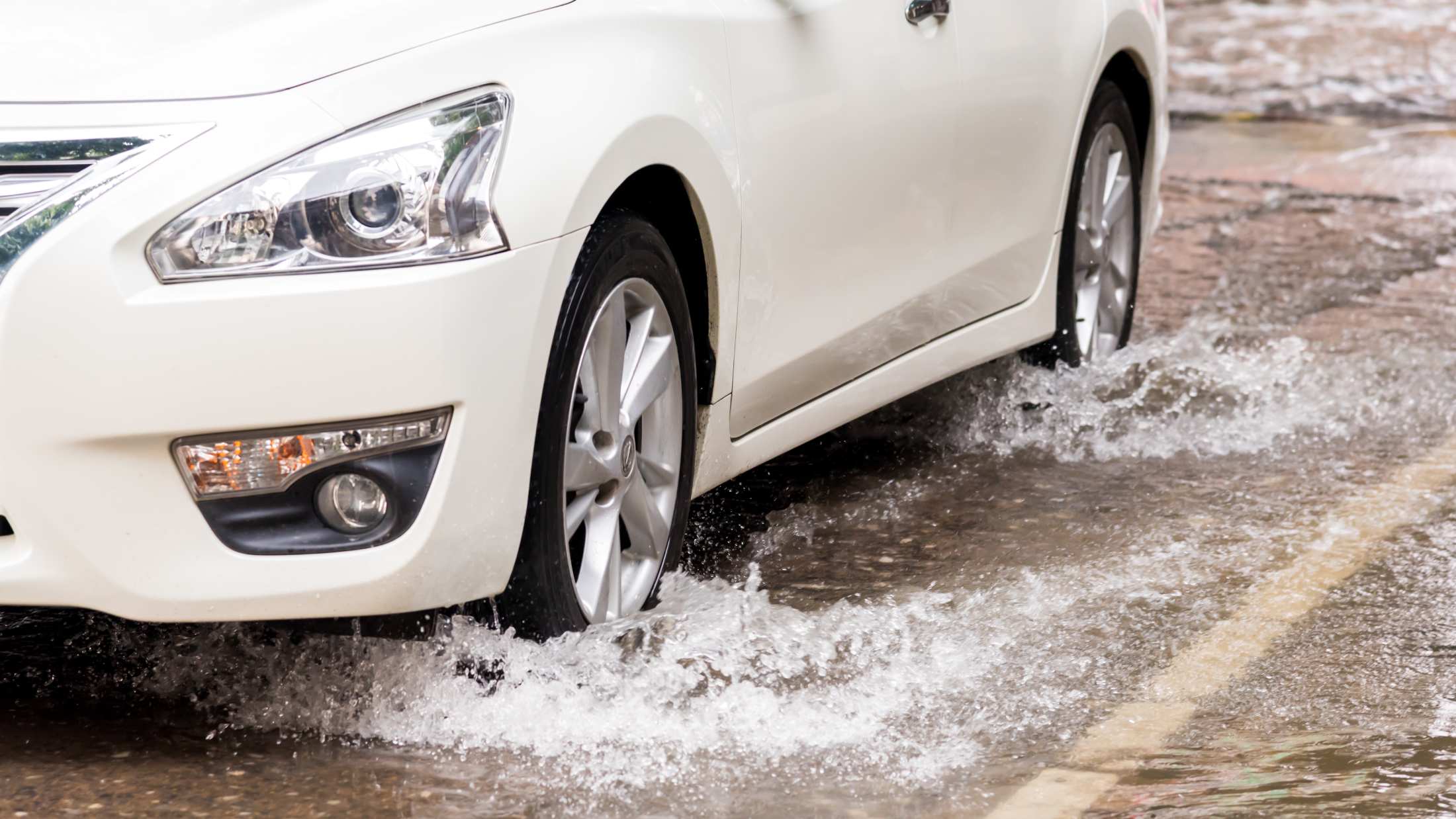How do I make a claim?
You’ll find all the information you need to make a claim on our help hub. Choose your insurance product from the icons below to get started.

Extreme weather conditions have become an all-too-common part of life in Britain these days. Storms, floods, and freezing conditions can have a devastating effect on our homes, vehicles and businesses.
We can’t control the weather. But we can help you prepare. Read the guides below for tips you can use to reduce the potential damage extreme weather could cause.
According to the Environment Agency, over five and a half million homes and businesses in England and Wales are at risk of flooding from rivers or the seaGo to footnote 1.

Driving in hazardous conditions
When the heavens open and flooding occurs, it's crucial to stay safe on the roads. Learn essential tips for driving on flooded roads, including precautions for different road types and what is and isn't covered by your insurance.

Learn how to stay safe, prepare for, and protect your property during and after a flood, and how to make a claim.

Learn how to prepare for and protect your home from high winds and floods, including resistance and resilience measures.

All you need to know about Flood Re, why it's important, who's eligible for it and what you can do if you live in a flood risk area.
Plummeting temperatures go hand-in-hand with a rise in road accidents and burst pipes.

Driving in hazardous conditions
AXA's essential tips for safe winter driving, including navigating snow, hail, and ice conditions, and how to ensure you are prepared for emergencies with a well-stocked car kit.

Prepare your home for winter with our top tips on dealing with heating, blackouts, floods, gutters, and making sure you've got the right level of insurance cover.

Discover essential winter car maintenance tips, including oil checks, tyre care, windscreen maintenance, coolant refilling, battery and lights checks, and preparing an emergency pack for safe winter driving.

Protecting your home in winter can be tricky. Keep your cool with AXA’s guide to making your home safe and warm as the big winter freeze bites.
Storms and high winds can cause expensive damage to your home, vehicle, or business.

Learn how to protect your home from storm damage with our tips, including storm warnings and post-storm actions.

Driving in hazardous conditions
Learn about the challenges of driving in high winds, including tips for different vehicle types, driving in storms, and the risks and precautions associated with towing trailers in windy weather.

Learn how to protect your home from high winds with tips on roof maintenance, garden preparation, and emergency kits.

Driving in hazardous conditions
Discover tips for safe driving during heavy rain and fog, including how to handle aquaplaning, navigate standing water, and improve visibility to ensure a safe journey in challenging conditions
When temperatures climb, follow these tips to stay safe and minimise damage to your home, business, and vehicle.

Discover how to keep your car in top shape during the summer months, avoiding common issues like overheating, flat tires, loud brakes, worn clutch, and more, for a smooth and worry-free road trip.

Driving in hazardous conditions
Prepare for your summer drives with AXA's top dos and don'ts, covering essential car maintenance, driving tips, and safety precautions to ensure a smooth and enjoyable journey.

Discover AXA's comprehensive guide to safeguarding your property, covering energy efficiency, security tips, and measures for a worry-free summer.

Driving in hazardous conditions
Discover our essential tips for keeping your car cool during soaring temperatures, including guidance on packing essentials, checking your tyres, charging your air conditioning, and ensuring safety for pets and passengers.
Before you start your claim for damage caused by extreme weather, we recommend checking what you are and aren’t covered for in your policy documents. You’ll find them in your online account.
The fastest way to make your AXA home insurance claim or motor insurance claim is online. You can register your claim online at any time — day or night. To make a landlord insurance claim or business insurance claim, you’ll need to call us instead.
You’ll find all the information you need to make a claim on our help hub. Choose your insurance product from the icons below to get started.
1 5.7 million properties at risk of flooding according to Environment agency, 2018. Return to content